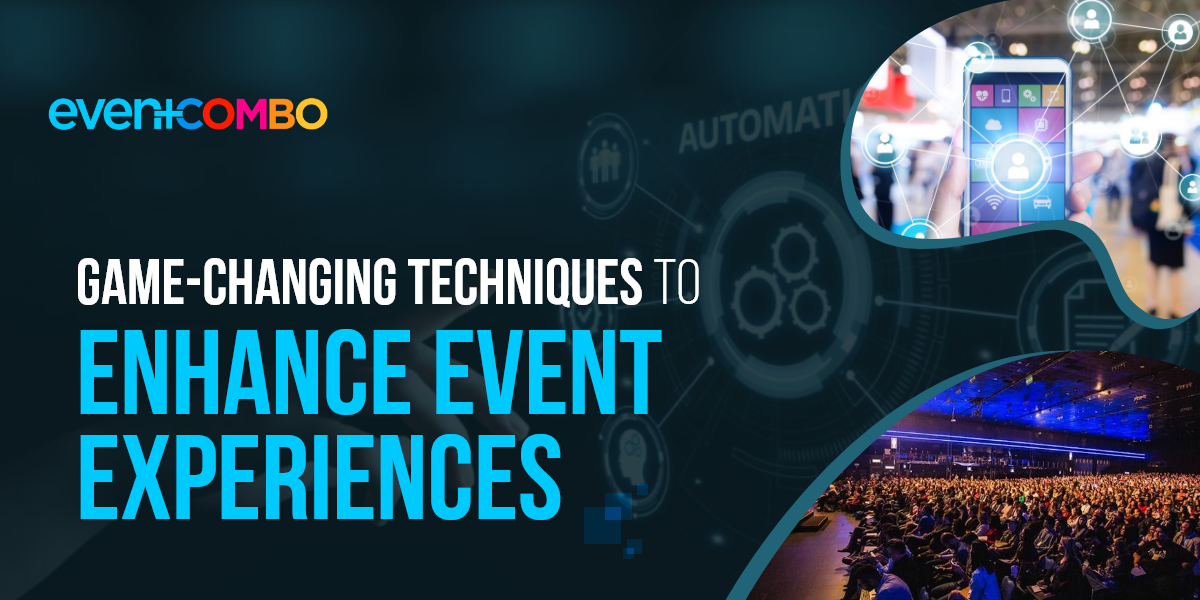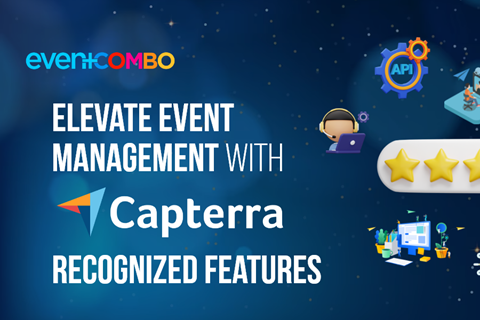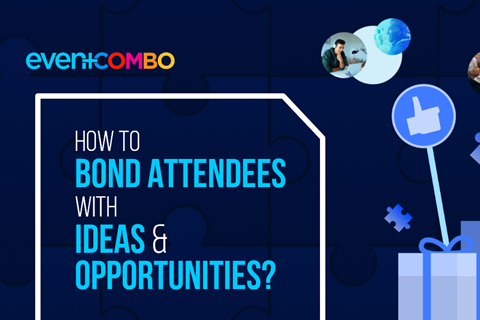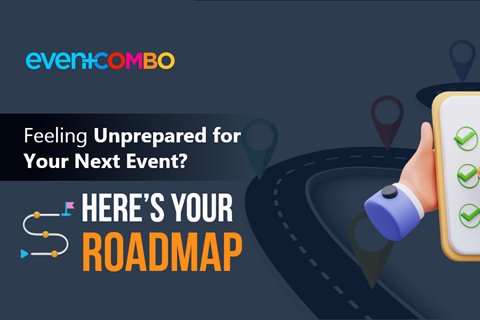6 Ways Event Management Automation Boosts Success and ROI

May 03, 2024 Praggya Joshi
Event management is no walk in the park. From venue hunting to registration management, event promotion, and feedback evaluation, the workload can soon feel overwhelming. As the landscape of in-person management continues to evolve, delivering top-notch attendee experiences becomes more crucial than ever. However, if you find yourself buried under a mountain of manual tasks, your capacity to craft exceptional experiences is bound to suffer. And that's why embracing event management automation is essential.
In this blog, we'll delve into the key areas of in-person event management that you can automate for substantial benefits.
1. Event Registration
Managing ticket sales and registrations encompasses multiple processes which oftentimes poses a significant challenge for many event planners. Also, it’s vital to promote brand awareness or recognition while selling tickets online. How can you accomplish all of this? The solution lies in event ticketing software. In the absence of this event management automation tool, you will need to handle different types of tickets and their prices, process registration fees, manage lists of attendees, and send confirmation emails, all manually.
Picture it as an online box office that operates around the clock, allowing people to purchase tickets at their convenience. Besides streamlining essential processes like ticket sales, secure payment processing, and attendee list management, some software even enable you to create dedicated online pages for your in-person event, providing attendees with access to vital details such as timing, location, and agenda.
A white-label ticketing software empowers you to maintain complete control over the appearance and branding of your tickets. Event organizers who boast a loyal customer base, can leverage this technology to sell personalized tickets that reinforce their brand identity. You can also integrate your registration platform with your event website, eliminating the need to redirect potential attendees to external web addresses.
2. Event Promotion
No matter how meticulously you organize a meeting or conference, without effective promotion, you won't achieve the desired event ROI. Promotion typically occurs through channels like social media, email marketing, creating a landing page, and publishing ads. Once again, you can harness the power of event management automation. For instance, you can schedule pre-event, during the event, and post-event emails in your email marketing engine. Set up email sequences that are triggered by specific actions, such as someone registering or clicking a particular link on your website. This enables you to send targeted and personalized messages to your audience, thereby increasing engagement.
Likewise, you can also establish an automated social media campaign by creating a predefined schedule that triggers posts when your potential attendees are active on social platforms. This enables you to reach more people with your event promotions.
3. Venue Management
Whether managing one event or several, ensuring venue readiness can present significant challenges. However, leveraging technology to automate venue and facilities management can lead to streamlined operations and optimized resource utilization. Tasks such as booking processes, managing event calendars, and allocating rooms, equipment, and staff can be incredibly time-consuming and prone to errors. However, by automating these processes, you can significantly lighten your load.
Being able to visualize floor plans for different events based on your target audience can greatly enhance the selection process's accuracy. This functionality is readily available in modern venue management solutions, empowering in-person event organizers to gain a comprehensive understanding of event spaces from virtually anywhere.
4. Attendee Engagement
One of your primary objectives as event planners should be to ensure your attendees are fully immersed in the experience. While curating entertaining content is crucial for engagement, delivering it effectively is equally important. Additionally, incorporating fun and competitive elements through games and challenges with relevant rewards and rankings enhances attendee involvement. However, these tasks can be time-consuming if not automated. Automation not only streamlines engagement activities but also adds to their enjoyment. For instance, an event app enables you to stimulate conversations and interactions in innovative ways without the need for extra resources.
You can curate a content track tailored to your attendees' interests and deliver it in innovative ways using the app. A key strategy to accomplish this is through gamification, leveraging the intrinsic reward system of attendees. Additionally, features such as beacon-triggered push notifications, matchmaking functionalities, and tailored recommendations based on attendee personas are effective tools that event apps can utilize to enhance engagement. The best part is it doesn't require continuous manual intervention and directly results in the delivery of personalized event experiences.
5. Lead Retrieval
Exhibitors invest significant resources into their event participation, aiming to attract the attention of their target audience. However, the extent of their access to potential customers is directly tied to the number of leads they generate. Capturing leads is therefore a pivotal aspect of an event, and leveraging technology can simplify and automate this process.
Traditional methods like exchanging business cards or manually recording lead information on notepads are outdated. Automating lead capture with a lead retrieval app streamlines the process, facilitating meaningful connections with prospects.
A mobile app for lead retrieval enables you to gather lead data directly from the event floor. Its dashboard provides detailed analytics, allows for comprehensive note-taking for each scanned lead, and facilitates the export of data to Excel and CSV formats. The primary advantage of this automation is the ability to make informed decisions about engaging with leads based on analytics. This eliminates wasted time chasing cold leads, allowing you to focus on pursuing hot leads and seizing new opportunities with data readily available at your fingertips.
6. Data Collection and Analysis
Without a solid understanding of the current event's performance, it's nearly impossible to elevate experiences and expand your reach. One of the most critical aspects of event management automation is data analytics, in which AI is now taking the lead. It is impossible to manually collect and analyze large sets of event data, curated throughout the event cycle. However, AI technologies integrated into event management solutions can easily analyze attendee demographics, monitor engagement, and provide actionable insights for future event planning.
Predictive analytics within these solutions assist in identifying the most probable attendees, forecasting ticket sales, and enhancing ongoing marketing efforts. It's worth noting that assessing attendee engagement is among the most challenging tasks, primarily because it's not easily quantifiable. Surprisingly, event technologies such as event apps, social media integration, and gamification offer avenues to engage attendees and subsequently gauge their levels of engagement.
For instance, incorporating gamification elements into an event app for attendees, such as scavenger hunts or leaderboard competitions, allows you to incentivize attendee participation and ignite engagement. By leveraging insights derived from attendee interactions with event apps, social media platforms, and integrated channels, you can effectively track engagement levels and, consequently, make data-driven decisions for your forthcoming events.
Conclusion
When you automate event management, it effectively tackles the challenge of errors that can arise during repetitive and time-consuming tasks. Additionally, it enhances efficiency in the planning and execution of in-person events by freeing up planners' time to focus on more strategic tasks. Leveraging automation tools not only delivers exceptional events but also cultivates a more rewarding experience for event planners.
Are you ready to harness the potential of automation in your planning process? Explore Eventcombo's suite of tools here. https://bit.ly/3R9bkuP
close








